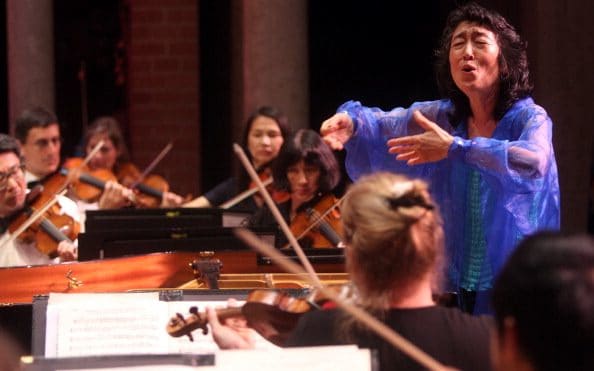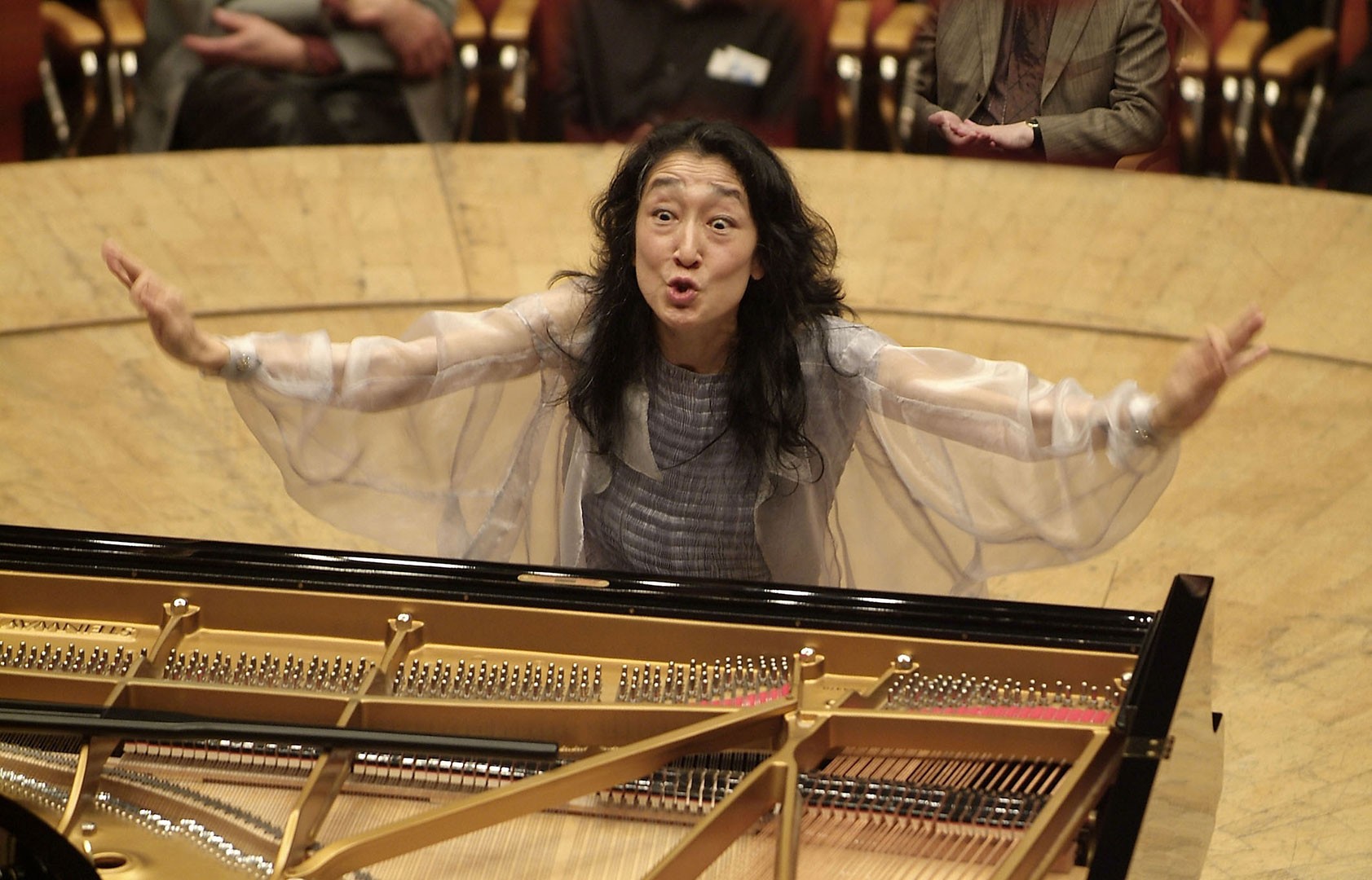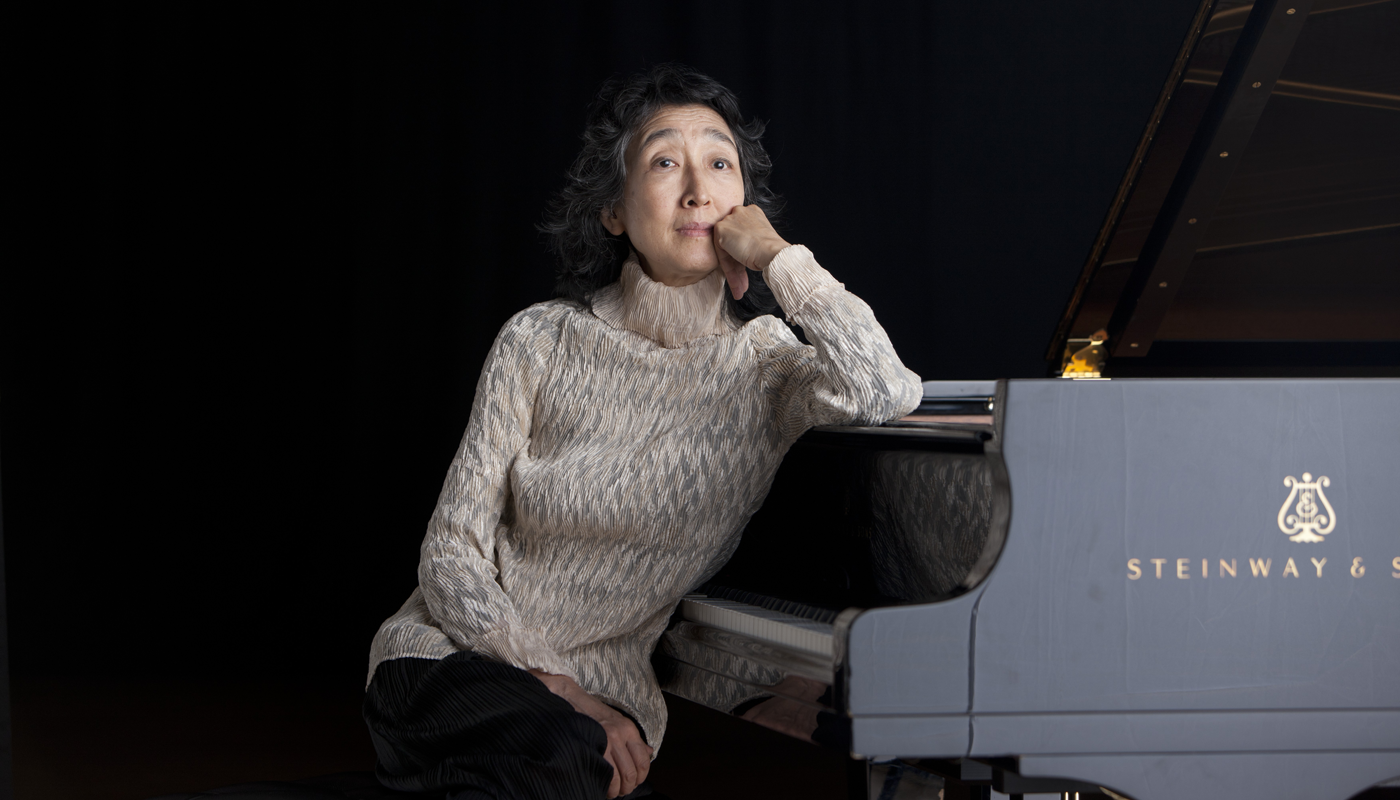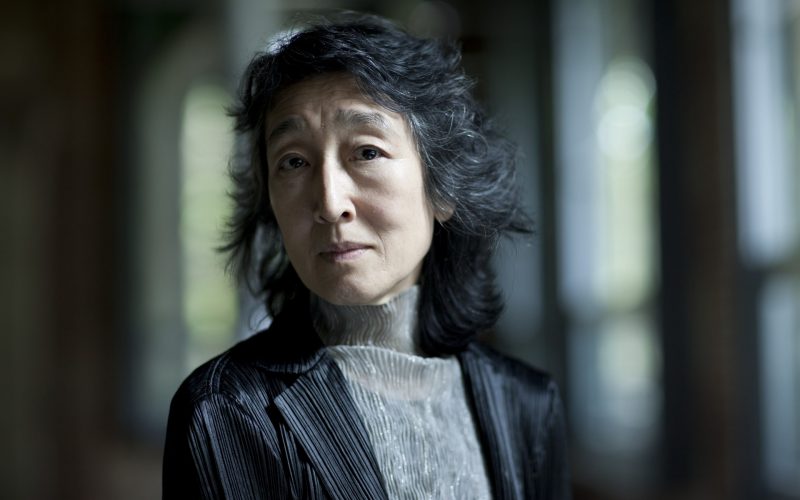‘It’s not enough to play the piano – it takes a lifetime to understand music’

Uchida doesn’t like to give interviews, yet when we meet she’s all smiles and offers me a cup of her favourite very expensive brand of roasted brown Japanese tea. “Very healthy, no caffeine,” she says. I ask if Japanese food in general is healthier. “That’s a complete myth,” she says scornfully. “Everything is packed with monosodium glutamate. After a few weeks there I get sick.”
Young pianists are pushed, pushed, pushed – there is such pressure to be a star instantly
Uchida has to be careful about her health, since persistent vertigo caused by an inner ear problem left her unable to play for months. “I had to abandon my Beethoven Diabelli recording,” she says. “That’s now scheduled for 2020.” Why such a long wait? “Because now I am busy working on Schubert sonatas, and that’s a completely different sound-world. You cannot go instantly from one to another.”

After a career of more than 40 years, Uchida is still at the top of her game, which she ascribes to her slow rise. “Nowadays young pianists are pushed, pushed, pushed,” she says. “There is such pressure to be a star instantly. Everything has to be instant, because of this social… social… what do you call it?” Social media? “Yes exactly. They think this is something to do with “sharing”, telling the world what they had for breakfast. That is not sharing, that is advertising. Sharing is what happens in a room with a few people at a concert, everyone focused on something they love.
”Playing Mozart on a quiet antique piano in a big space like Wigmore Hall? You must be bloody joking!
When her father left Vienna, the 16-year-old Uchida stayed on alone to study. Courage is one thing she has never been short of, and that paradoxical combination of stubborn pride and humility, a quality she shares with one of her musical heroes, Arnold Schoenberg. Five years later Uchida won the Beethoven competition in Vienna, and six years later second prize at the Leeds competition.
 Credit: Hyou Vielz
Credit: Hyou Vielz
But even then she wasn’t sure of her talent. “You have to have your own sound,” she says. “Think of the pianist Rudolph Serkin. He could play on the worst upright with strings missing, and within a few bars you would know it was him. He was the pianist who really brought tears to my eyes. And that is why I am so happy to be associated with Marlboro,” she says, referring to the famous music summer school for gifted young musicians in Vermont, co-founded by Serkin in 1951. Uchida became co-artistic director of the school with Goode in 1999, and since his retirement in 2013 has run it single-handedly. “I love it so much, but it is such hard work! I have to be mother to them all,” she says.
So when does Uchida think she found her own sound? “When I was in my late twenties,” she says. “I switched on Radio 3, heard someone playing the piano and I thought, ‘My God, that’s me!” By now she was living in London, which she still adores. “I think of myself as a Londoner,” she says, “and I absolutely love the language – it has a special kind of music, more fluid than German, which I also love.” What attracts her to England? “The same reason that Isaiah Berlin liked it. You can be yourself, you don’t have to conform, there’s a great intellectual tolerance.”
The affection has been returned. Uchida was a made a Dame Commander of the British Empire in 2009, some years after she became a citizen. She’s built a self-contained, orderly life, centred around her obsessive need to be playing all the time. “My back and shoulders get tired, but my mind and fingers, never,” she says. In the adjoining house is Robert Cooper, her partner of more than 25 years and a special adviser to the EU on Burma. Over the road is the mews house where her three Steinways live, plus the occasional short-term piano tenant, when Uchida decides it’s time to try out an 18th-century Square piano or a Viennese Graf.
 Credit: Justin Pumfrey/Decca
Credit: Justin Pumfrey/Decca
The illness and death of close friends and of revered colleagues Pierre Boulez and Nikolaus Harnoncourt, made 2016 a difficult year for Uchida. “It made me reflect on things. I have reached the age where I can step back. I don’t have to run around giving 120 concerts a year – 50 is enough for me. I don’t need things; I don’t need a big house in the country. The trouble with possessions is they end up possessing you, if you are not careful.”
Her latest project is a partnership with the Mahler Chamber Orchestra, with which she recently played Mozart piano concertos in London as a curtain-raiser to her three-year residency at the Southbank Centre. Mozart has always been dear to her, and she has firm views about the fashion for playing him on antique 18th-century pianos. “Well of course I love to play these old instruments in private. But do you think I am going to play one of these old instruments, which are so quiet, in a big space like Wigmore Hall? You must be bloody joking!”
She’s also taking time off, but to do what, she isn’t sure. “I might study some Beethoven sonatas,” she says. When I express surprise that she doesn’t learn a new language or travel, she says this isn’t an option. “I can never leave my passion behind. Of course, if I take an interest in other things … this is only a pleasant diversion. For me music is all-consuming.”
